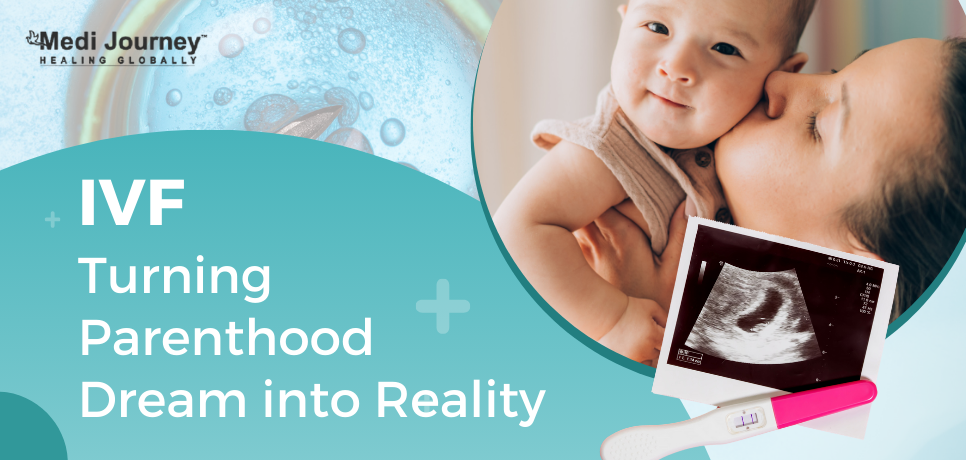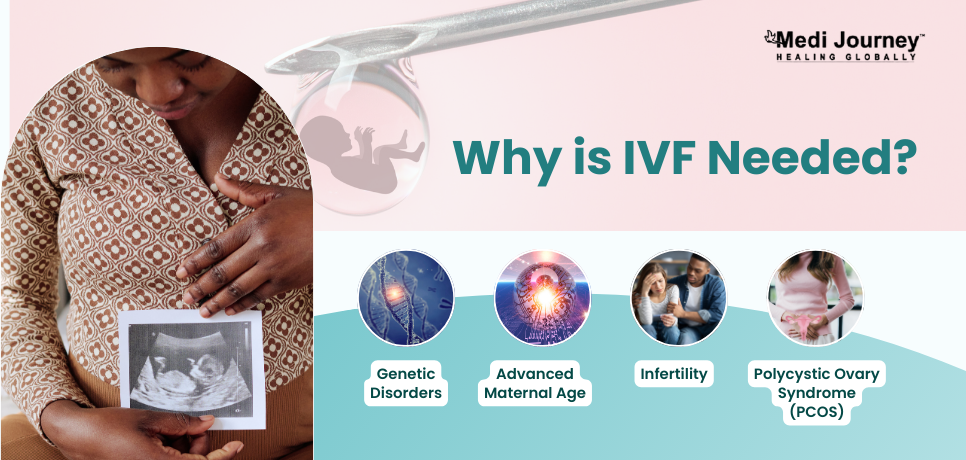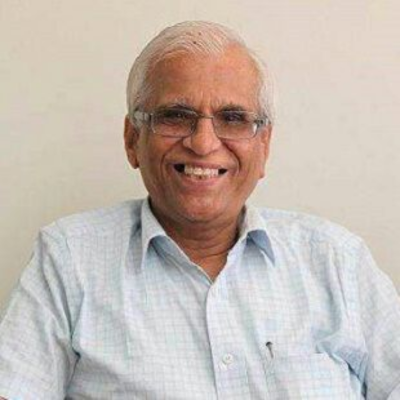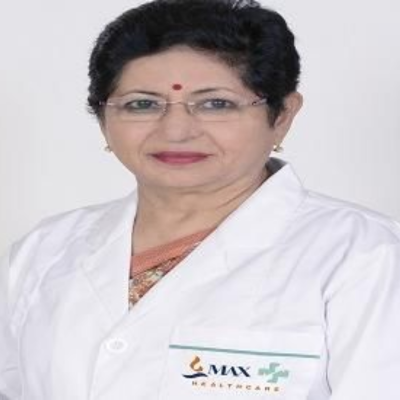The Role of Government Initiatives in Promoting Medical Tourism in India
 02 April,2025
Read More
02 April,2025
Read More
Enquire now in case of any assistance needed

Getting pregnant is one of the most blissful things that can happen to a couple. Holding your baby is among the best feelings you can ever experience. It also gives you a sense of responsibility and purpose in life. But not everyone can feel this joy. Infertility has become a growing concern today.
Thanks to medical advancements, couples facing fertility issues can also become parents. IVF is one technique in which egg and sperm fertilize outside the body. Once the embryo forms, a gynecologist specializing in IVF procedures implants it into the woman's uterus.
If you and your partner are looking for viable chances of becoming parents, you have landed in the right place. This blog aims to educate you about IVF and how it helps couples suffering from fertility issues get pregnant.
In Vitro Fertilization (IVF) is a widely used ART (assisted reproductive technology) designed to help couples struggling with infertility. It has led to countless successful pregnancies. The process involves a series of steps to increase the chances of a successful pregnancy.
Following the embryo transfer, the woman is monitored for signs of pregnancy. Ten to fourteen days after the transfer, a blood test helps confirm whether the procedure was successful.
In Vitro Fertilization (IVF) encompasses several techniques aimed at assisting couples to achieve pregnancy when natural conception is problematic. The choice of which IVF technique to use depends on the specific fertility issues, patient history, and fertility specialists' recommendations.
The standard IVF procedure involves collecting mature eggs from the woman and fertilizing them with sperm in the lab. The fertilized embryos are then placed into the woman's uterus.
Some of the other IVF techniques are:

In vitro fertilization (IVF) is a medically advanced assisted reproductive technology designed to address various conditions and circumstances that hinder natural conception. Here are some scenarios where IVF is needed:
IVF is a complex procedure. It can be expensive if success is not yielded from the first cycle. IVF is available in various countries, but the success rate and cost vary significantly.
The IVF experts in India are highly experienced and well-versed with the latest advancements in the field. They provide high success rates for the treatment at affordable rates. The cost of IVF in India ranges from USD 1,200 to USD 4,200. There can be price variations due to multiple factors like the patient's age, medical history, fertility issues, and number of IVF cycles.
In Vitro Fertilization is one of the most successful ways of getting pregnant if someone suffers from fertility issues. Women aged 28 and younger have over 60% chance of being blessed with a child after one IVF cycle.
The success rate declines with advancing age. Other factors that influence the chances of a successful IVF cycle are the quality of sperm, egg, and embryo, lifestyle factors (smoking, alcohol consumption), cause of infertility, and reproductive history.
The age-wise success rate of IVF is as follows.
The success rate of IVF procedures reduces significantly with age. Hence, it is advised for couples facing fertility issues to get the treatment started right away for better outcomes.
No medical procedure comes without risks. Certain complications can occur during IVF. Some of these are:
Rigorous medical monitoring and vigilant communication with the healthcare team are imperative for minimizing and managing these potential complications during IVF. If you select one of the best IVF hospitals, the likelihood of these complications is generally low.
Infertile couples face a lot of stress as a family. Their inability to conceive creates a traumatic situation for them. ART or assisted reproductive technology helps such couples to get pregnant. IVF is the most widely used ART. The procedure's success rate is over 60%, making it one of the best treatments for less fertile couples wanting to start their own family.
Doctor of Pharmacy
Dr. Deepanshu Siwach is a skilled clinical pharmacist with a Doctor of Pharmacy degree.?He has 4+?years of experience and has worked with thousands of patients. He has been associated with some of the top hospitals, such as Artemis Gurgaon.
Dr. Parul Katiyar is a renowned and experienced IVF Specialist with an experience of 21 years. Her expertise encompasses a wide range of areas including PCOS, Reproductive Endocrine disorders, Male infertility, Endometriosis, Fertility Preservation, ICSI...
Senior Consultant
Medical Oncologist
Nanavati-Max Super Speciality Hospital, Mumbai
Book Appointment WhatsApp UsSenior Director
Gynecologist and Obstetrician, IVF Specialist
Max Super Speciality Hospital, Shalimar Bagh, New Delhi
Book Appointment WhatsApp UsSenior Director
Gynecologist and Obstetrician, IVF Specialist
Max Smart Super Speciality Hospital, Saket, New Delhi
Book Appointment WhatsApp UsSenior Director
Gynecologist and Obstetrician
Max Smart Super Speciality Hospital, Saket, New Delhi
Book Appointment WhatsApp UsSenior Director
Gynecologist and Obstetrician
Max Smart Super Speciality Hospital, Saket, New Delhi
Book Appointment WhatsApp UsSenior Director
Gynecologist and Obstetrician
Max Smart Super Speciality Hospital, Saket, New Delhi
Book Appointment WhatsApp UsFill up the form and get assured assitance within 24 hrs!
The Art of Effective Communication
 24 January,2025
Read More
24 January,2025
Read More
Trusted by Patients
"I am Asim from Bangladesh and was looking for treatment in India for neuro. I visited many websites to get the complete information regarding the treatment but I was not satisfied as I was getting confused. In the meanwhile, one of my friends suggested I seek help from Medi Journey as he experienced his medical journey very smoothly and was satisfied with it. They have filtered the top 10 doctors as per experience, the success rate of surgery & profile, so it helps us to choose the best treatment in India. "
"For my knee surgery, Medi Journey guided me to BLK Hospital where I received exceptional care. The team's support and the expertise at BLK Hospital exceeded my expectations. Thank you Medi Journey for making my medical journey stress-free. "
"I came from Iraq for my granddaughter's eye surgery in India facilitated by Medi Journey, due to critical cases they advised us to get a second opinion from the different hospitals before going to surgery. Finally, we went to Fortis Escort Hospital, which helped us to get more confidence for diagnosis. Fortis Escort Hospital has the best eye surgeon team with the latest instruments. Thanks to all team members for providing a high-quality treatment in India at an affordable cost. "
"I came for my hair transplant in India, before coming I was so confused about choosing the best clinic and surgeon for me. But thanks to God one of my friends had a hair transplant in India through Medi Journey. He recommended me to go with them. I am completely happy with my experience with them. They were always very fast in their responses to me. the success rate of my hair transplant surgery is 100%."
"Artemis Hospital, suggested by Medi Journey, turned out to be a great choice for my treatment. The personalized assistance and medical care were exceptional. I'm grateful to Medi Journey for guiding me to a hospital that perfectly matched my needs. Highly recommended! "
"I came from Afghanistan for my treatment in India at Jaypee Hospital, Noida. I had a fantastic experience with Medi Journey. Kudos to them for their incredible support during my medical journey. They not only took care of all the logistics but also connected me with a fantastic healthcare team. Efficient, caring, and highly recommended for a hassle-free medical tourism experience."
"I am Adam from Kano, Nigeria, one of my friends from Nigeria was facilitated by Medi Journey, and he recommended us to go with them. I sent my all reports to them and within 48 hours they reverted with 4 options from different hospitals. They helped me to get a Visa letter from the hospital, arrange pick-up from the airport, and book a hotel for me. Their team is very honest and throughout our stay in India they are with us they are caring for us like his family members. BLK Hospital is the best hospital in India with a top surgical oncologist surgeon team, a very advanced OT, and a Radiotherapy department. I wish more success to Medi Journey. "
"Great experience at the Max Hospital for my spine surgery and was successfully done. I thank my neurosurgeon and his entire team. I recommended all of my country's people to Medi Journey for treatment in India, they choose the best hospital, the best doctors, and the best cost for patients."
"I came to India from Dhaka, Bangladesh for my father-in-law's cardiac surgery at Fortis Hospital. I was confused about choosing the best surgeon for him before coming, but their team helped me to choose the best hospital and best cardiac surgeon in India with very good cost and 100% success rate of surgery. I am very happy with the services, really they make my journey so comfortable that make me feel at home. Thanks again and I like people to choose "Medi Journey" as your travel guide. "
"I am Mohammad from Bangladesh came to India for my general health checkup. Medi Journey offers me the complete package including Pick-up from the airport, hotel services, and 24-hour assistance. They guide you to choose the best hospital in India, the best cost of treatment with top-most doctors and give you complete information about hotel booking, and pick-up from the airport before coming to India They have the best team to help. Always choose Medi Journey for your treatment in India."





